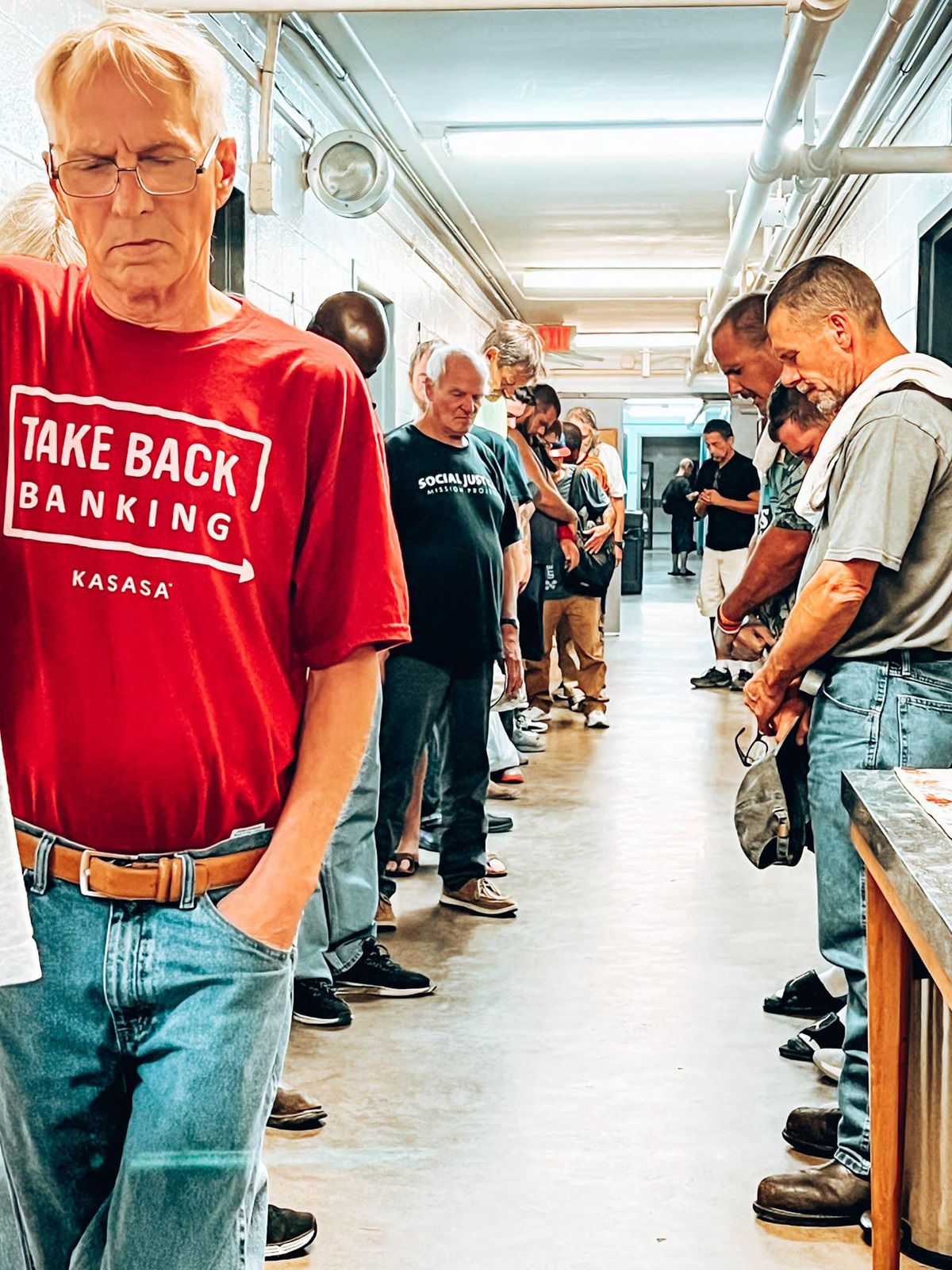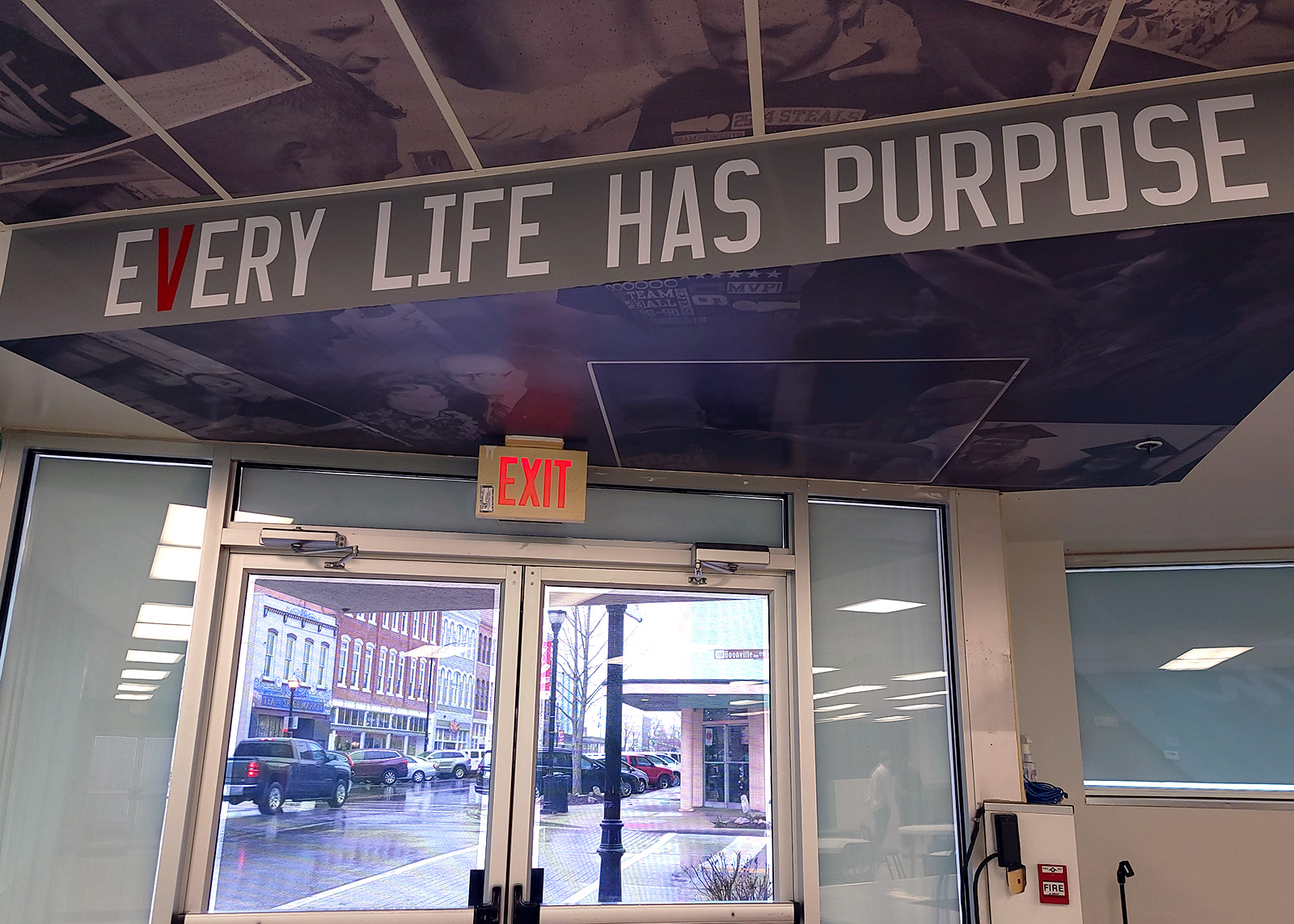OPINION|
For a brief moment, imagine being 18 years old, living a life of generational poverty, and experiencing a string of bad luck. Yes, your choices haven’t always been good, but the culture in which you were raised didn’t model behaviors and decisions for a healthy lifestyle.
Now, you find yourself in your 20s, 30s, 40s, or even 50s, having been in and out of incarceration, perhaps even spending some time in prison. You just need a break.
How do you go about discovering a place where people see beyond the hardship, when the cycle of poverty is etched into your face? Walking down the street, you see others and wonder how you can attain a lifestyle even remotely close to what they are experiencing. For once, you’d love for someone to invite you to dinner, to trust that you’d be a welcomed and worthy guest. If you have enough money, you may own a bicycle, but you're unable to make any repairs since cash is low. You’re lonely and have no one to talk to. Your friends, those recent connections, are still at the Department of Corrections (DOC). You definitely don’t want to go back to the DOC, but what are the other options?
When I see an individual in this type of situation, I wonder, “What was the defining moment that changed everything? What was the tipping point for this individual?”
Sadly, there aren’t enough people and places to step in and help. Many give up on individuals whose lifestyles reach a point of hopelessness, and yes, it's ultimately up to the individuals themselves to decide to change and leave that lifestyle behind.
Victory Mission serves diverse population of people in need
Last year, Victory Mission of Southwest Missouri served 2,676 unique individuals who needed shelter, workforce classes, professional counseling, case management, and pantry resources. Last year, 924 men were served through its shelter. The statistics of their population, over a five-year period, show that 94% are from divorced homes, 31% have been physically abused, 45% have suicidal thoughts, and 65% have been incarcerated.

Perhaps for the first time, these individuals have found in Victory Mission what they haven’t seen in years: an organization with people who have hope in their eyes and see opportunity in the beholder. Victory Mission extends a hand up to men and women who are new releases from incarceration, cyclical poverty, and addiction.
Victory Mission provides three distinctive opportunities for individuals seeking a new start. The emergency shelter allows individuals to stay 30 days for free while attending workshops and seeking employment. Of those who complete the “WorkReady Bootcamp,” 70% find employment within one week. Those needing transitional shelter pay a nightly program fee while working and saving up for permanent housing. Lastly, Victory’s Restoration Program is a 12-18 month comprehensive mentorship program as one transitions to independence.
Over 87% of those who enroll in the Restoration Program are not reincarcerated, compared to 56% statewide. Victory’s Restoration graduation rate is 3-4 times the national average for year-long recovery programs.

As these individuals gain confidence and begin rebuilding a life they’ve only dreamed of, building social capital is essential. Social capital is the connections, networks, and relationships among people, and their value can be accessed to help people succeed. People with high social capital find better jobs and are happier and healthier. How do the individuals who have been through Victory Mission’s program receive social capital? It’s through the local community and by connecting with members of the community in faith-based settings, work, peer groups, and recreational sports and other activities.
State funding supports new shelter
This past spring, I attended Gov. Mike Parson’s visit to Victory Mission to further check out their program and meet individuals who have decided to rewrite their story. Governor Parson encouraged the participants to stay the course, complete the program, and become respectful members of the local community. I watched the men and women nervously listen to Governor Parson, yet with a glimmer of hope in their eyes and dignity worn on their chests.

Governor Parson approved $11 million to be allocated to Victory Mission for this upcoming fiscal budget to build a Victory Hub, impacting more people. Why? Because he sees the impact Victory Mission is making on individuals who are transitioning out of the Department of Corrections with the hope of becoming a part of society.
On average, Missouri spends $32,000 for one inmate. Over 51% of Victory Mission’s restoration program participants come from the department.
Governor Parson sees the taxpayer advantage of funding a new Victory Hub; however, now additional funding from the community is needed for the rest of the building project.
RELATED STORY
Springfield’s Victory Mission awarded $11 million in state budget for 160-bed shelter
The new facility will be designed to accommodate emergency, transitional and long-term needs on the first floor, with offices on the second floor.
The Victory Hub exemplifies operational efficiency by integrating six distinct services into one facility: an emergency shelter, a transitional shelter, a recovery programming facility, a restaurant/cafeteria for guests, event meeting spaces, and administrative offices. The current 65-year-old building and its outdated furnishings, fixtures, and beds urgently require replacement. Additionally, the inclusion of a commercial kitchen is imperative. This project aims to establish a dignified and welcoming environment, supporting individuals ready to start anew.
Jason Hynson, executive director of Victory Mission, stated, “This injection of funds will jumpstart a vision that has only been a dream.” The current bed facility is 65 plus years old and nearing its end of life. “Victory's next step will be to continue to work forward to find additional funding, ensuring that we can continue to provide vital support services to those in need.”
To learn more about Victory Mission and how you can be the answer to their social need, visit their website.



